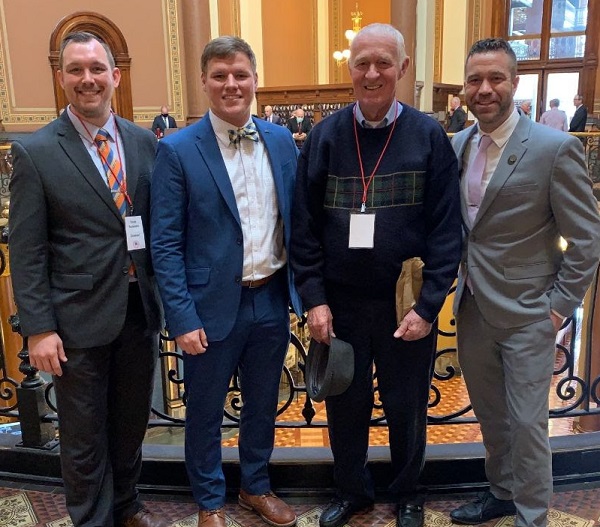
April 5, 2921
~by State Senator Jesse Green
This week was the 12th week of the legislative session. It included the next important legislative deadline of the year. In order to be considered for the rest of the year, policy bills needed to be out of their original chamber and through committee in the second chamber. In other words, we spent time this week looking at policy bills sent to us from the House.
Early in the week I was excited to vote yes on Senate File 496. This bill eliminates noncompete agreements with employees making, on a monthly average, $14.50 an hour or less. It prohibits noncompete agreements for low-wage employees restricting employment by a different employer for a certain period of time, in a geographical area, or a similar role. Noncompete agreements are a barrier to the workforce, and inhibit mobility and upward advancement for people working hard to support themselves and their loved ones.
Another bill we passed this week was House File 260, allowing a person providing child care to care for five or few children or six or fewer children if one of the children is school-aged. Current law requires a child care home to register as a child development home if the child care home provides child care to more than five children at any one time. Access to affordable child care has been an issue for a while, especially while many were working from home during the pandemic. This bill is one way we can address the need for child care, especially in rural areas, without creating a new government program or further complicating Iowa’s tax code.
In Human Resources, we voted on another child care bill HF 302. This bill addresses what we call “the cliff effect.” This was a bipartisan effort that helps families gradually phase out of child care assistance rather than be instantly cut off due to a increase in salary. Ronald Reagan once said, “We should measure welfare’s success by how many people leave welfare, not by how many are added.” This policy I believe will encourage people to keep pursuing more opportunity and independence from government rather than being afraid of losing the benefit of child care so abruptly. That fear makes many people afraid to keep moving forward because child care is so expensive.
Higher property assessments and a real property tax cut – New property assessments arrived in many Iowa mailboxes this week and those assessments came with a shock for many Iowans. The Quad City Times reported average increases of 8.5 percent in Scott County, WOWT noted increases of $55,000 on a residential property in Council Bluffs and the Sioux City Journal wrote of an increase of 13 percent in parts of Sioux City.
Property assessments, along with local levy rates, are the factors in determining property taxes paid by Iowans and these sharp increases in value can lead to painful property tax increases for Iowans, their families, and seniors. When assessments rise, property taxes increase, even if the levy rate stays the same. In 2019 the Legislature passed significant property tax reform to improve transparency around the property tax process and give property taxpayers more information to engage into local taxing decisions.
This session the Iowa Senate is again working to reduce the property tax burden. SF 587 eliminates the property tax levy on mental health and shifts funding to the state level. Eliminating this levy not only means over $100 million in reduced property taxes, it also has a compounding effect in future years because as property assessments rise, the elimination of the levy will reduce the increase of property taxes when assessments rise.
Property tax increases are especially difficult for many Iowans. Seniors on fixed incomes frequently do not have an increase in income to pay for additional taxes. Working families need new clothes for growing children and high property taxes are a hurdle for new home buyers working to attain the American Dream of home ownership. Permanent, reliable tax relief is a positive, pro-growth solution for many Iowans.

